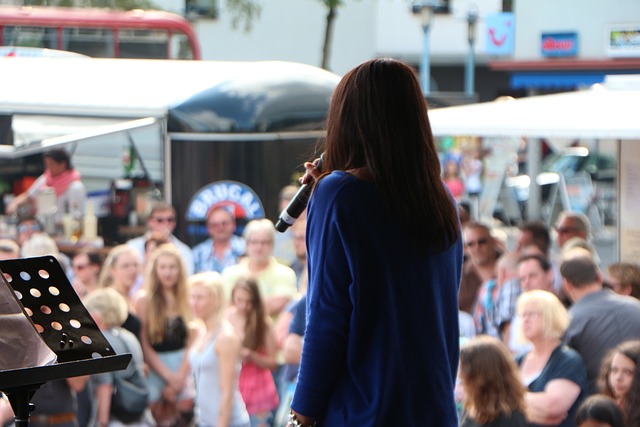For successful Event Planning for Local Businesses, prioritizing community outreach demands understanding neighborhood dynamics through leader, owner, and resident consultations. Aligning events with local interests fosters connections, boosts engagement, and strengthens business-community bonds. Pre-engagement strategies using surveys, focus groups, or interviews gather insights to create tailored experiences that resonate deeply. Collaborating with established groups leverages infrastructure for amplified reach and impact, ensuring impactful and lasting positive effects on both the community and businesses involved.
“Unleashing the Power of Community Engagement: A Comprehensive Guide to Successful Outreach Events
Event planning for local businesses thrives on connecting communities through meaningful experiences. This article unravels the art and science of organizing impactful community outreach events, from identifying diverse needs and interests to crafting engaging concepts that resonate with locals. We explore effective strategies for venue selection, partnerships, and marketing, ensuring your initiatives captivate participants and foster a thriving local ecosystem.”
- Identifying Community Needs and Interests
- – Understanding the local landscape: demographics, cultural events, existing community groups
- – Conducting surveys, focus groups, or interviews to gather input from potential attendees
Identifying Community Needs and Interests

When planning community outreach events, understanding the needs and interests of your local community is paramount. This involves a thorough assessment to identify pressing issues and passions within the neighborhood. Event planners should consider engaging with local leaders, business owners, and residents directly to gauge their priorities. By doing so, you can tailor initiatives that resonate deeply, fostering genuine connections and higher participant engagement.
For event planning for local businesses, aligning initiatives with community interests is a strategic move. It not only strengthens ties between businesses and the area they serve but also enhances the overall success of the outreach program. Understanding the unique needs of diverse demographic groups ensures events are inclusive and impactful, leaving a lasting positive effect on both the community and the businesses involved.
– Understanding the local landscape: demographics, cultural events, existing community groups

Before planning any community outreach events, it’s crucial to understand the local landscape – from demographics and cultural events to existing community groups. By delving into these aspects, event planners can tailor initiatives that resonate with the specific needs and interests of the target audience. For instance, a vibrant mix of diverse cultures may inform programming that celebrates heritage and promotes inclusivity. Conversely, areas with high concentrations of young families might benefit from activities focused on education and community building.
Event planning for local businesses should also consider the existing infrastructure and resources within the community. Identifying collaborative opportunities with established groups can amplify the reach and impact of outreach efforts. For example, partnering with local schools or community centers allows events to leverage these spaces and networks, fostering deeper engagement and sustaining the community’s involvement in future initiatives.
– Conducting surveys, focus groups, or interviews to gather input from potential attendees

Community outreach events, a strategic element in event planning for local businesses, are significantly enhanced by engaging with potential attendees beforehand. Gaining insights through surveys, focus groups, or interviews allows organizers to tailor experiences that resonate deeply with the community. This proactive approach ensures the event aligns with participants’ interests, expectations, and needs, fostering higher attendance and engagement.
By collecting qualitative and quantitative data, businesses can identify key preferences, address concerns, and incorporate valuable feedback into their planning. Such methods not only strengthen community ties but also contribute to the success and impact of the outreach effort. This inclusive process demonstrates a commitment to creating events that are meaningful, relevant, and genuinely beneficial to local residents.
By delving into the local landscape and actively engaging with the community through surveys, focus groups, and interviews, event planners can create meaningful and impactful outreach events tailored to meet specific needs and interests. This strategic approach ensures that local businesses not only attract but also retain customers by fostering a sense of community and belonging. Event planning becomes a powerful tool for building stronger connections and driving sustainable growth within the region.
